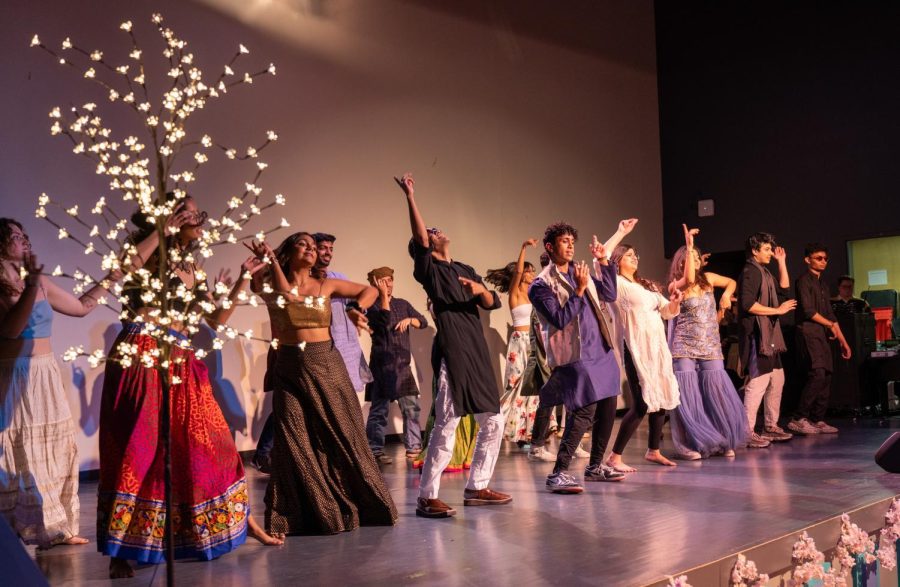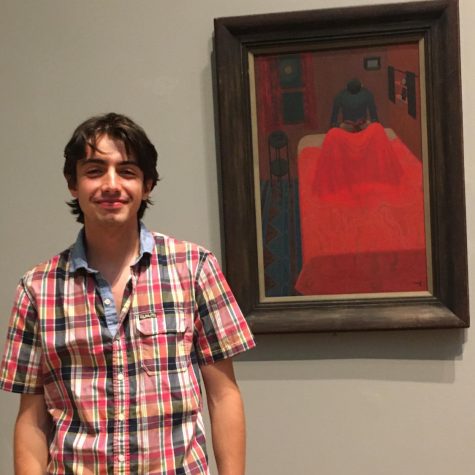Diwali lights up Harris Concert Hall
Students celebrated Diwali with lively dances, traditional food and vibrant lights in the Harris Concert Hall.
November 7, 2022
Diwali, also known as the Festival of Lights, returned to Grinnell College with a vibrant and long-time traditional campus celebration hosted by the South Asian Student Organization (SASO).
The holiday was celebrated on Oct. 28 in the Harris Center. Diwali, an important Hindu festival also shared by several other South Asian religions, celebrates the end of the god Rama’s fourteen-year exile.
“It marks the day he came back and lit the entire city, and that’s why they call it the Festival of Light,” said SASO cabinet member Dev Sethia `25.
In India and other South Asian countries, Diwali is traditionally celebrated with food, fireworks, festivities, ceremonies and prayers called “pujas.” “Traditionally, we clean our houses and make sure that everything is in order and clean, because when Lord Rama returned, the entire city was cleaned just for him. Cleaning marks the entry of a good spirit or a good soul into your house,” Sethia said.
SASO cabinet member Ayu Tuladhar `25 noted that Diwali is celebrated in many ways depending on the region you are from. “There are different forms of it. Even though Nepal is a Hindu majority country, we don’t celebrate Diwali, but we have something like it called ‘Tihar.’ It’s pretty similar, but there are some smaller cultural differences such as the food,” she said.
Tuladhar said that SASO aimed to bring a focus on entertainment to the celebration. “Usually you do Pujas to honor the god in a more direct way by either going to the temple or hosting something at your home and lighting candles, incense or the lights called ‘diyas.’ The way every household celebrates is different, but it’s very communal and that’s what we tried to do here. Big religious festivals bring people together, and we thought the best way to do that was by bringing in good food and music to create cultural awareness.”
SASO provided an array of Indian and other South Asian foods and drinks, while a variety of performances ranging from modern Bollywood to more traditional dance forms took the stage. Both Sethia and Tuladhar said they thought the event was a success, though they did highlight some difficulties coordinating with student affairs over fall break and being forced to source most of the food from Des Moines, over an hour away from Grinnell.
After proposing the idea of a more formal religious ceremony, Sethia concluded, “I want to make it feel a lot more like home so other people who aren’t necessarily from our culture know what home is like for us and so that we as South Asian students have something to fall back on whenever we feel far from home.”
Though the celebration was intended to attract everyone on campus, Sethia noted that it especially had special meaning for South Asian and international students who are far away from their families back home.
“There’s always something that you feel like you’re missing because you don’t have your family over here,” he said.
“But over time, the people you hang out with, not just South Asians but Americans and people from all over the world, become your family in a way. Getting to spend a special occasion for you with them is also really important,” added Sethia.



















































